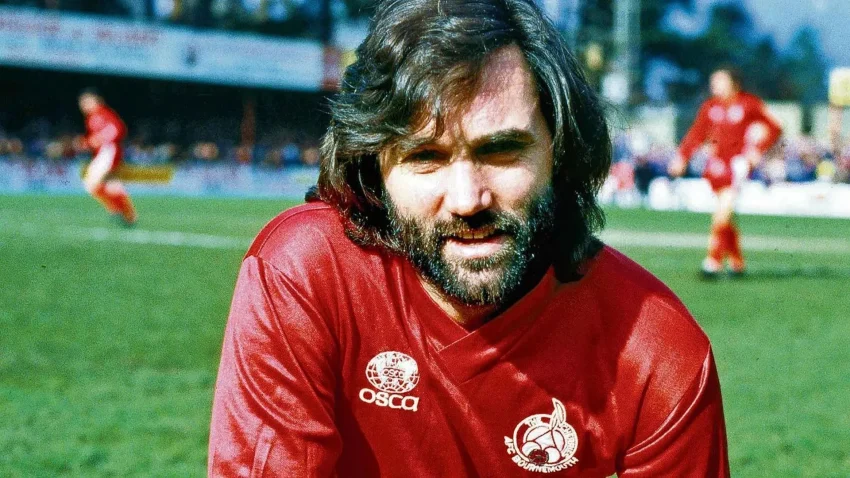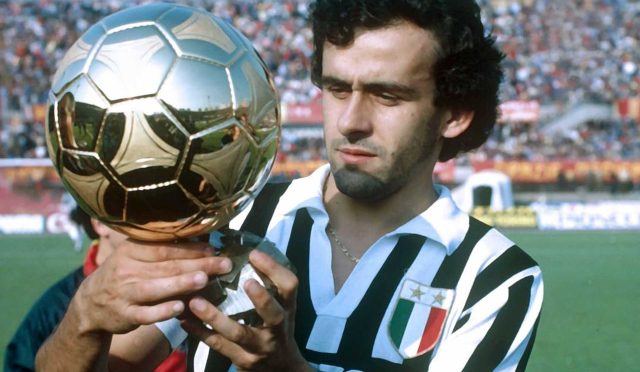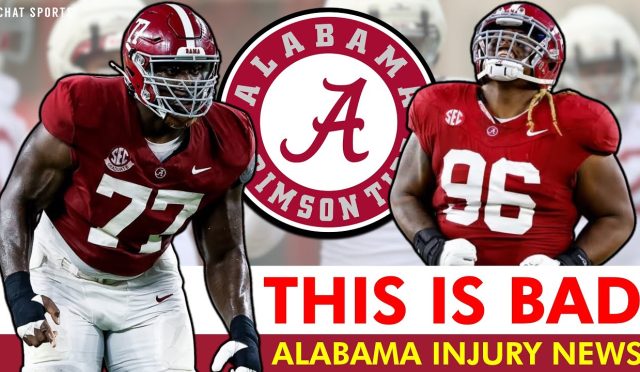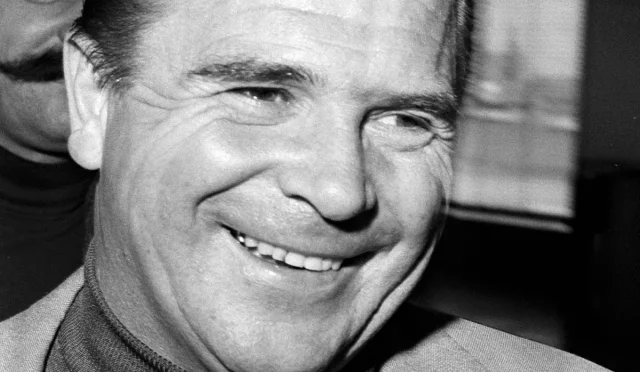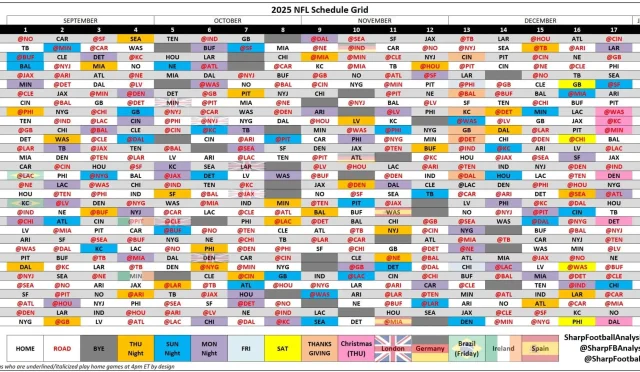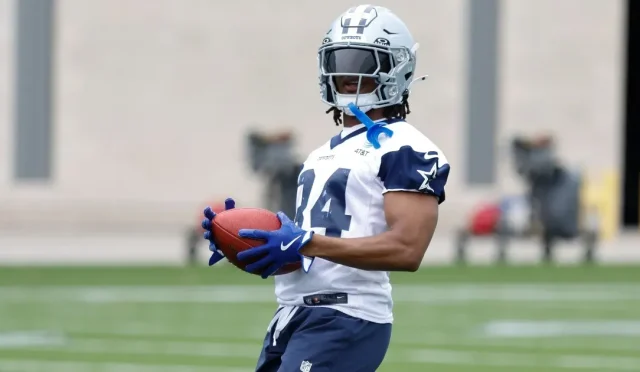George Best, born on May 22, 1946, in Belfast, was not just a footballer; he was a cultural icon who left an indelible mark on the world of sports and fashion.
Renowned as one of the greatest forwards in history and celebrated for his dazzling skills, Best significantly influenced the allure of football during his time at Manchester United.
His electrifying performance led to notable achievements, including being named the European Footballer of the Year in 1968 and helping United clinch their first European Cup.
As a member of the legendary Manchester United lineup in the 1960s, Best redefined what it meant to be a famous footballer, combining athletic prowess with a captivating lifestyle that earned him the nickname
Fifth Beatle”. Best’s legacy goes beyond the pitch; he encapsulates the vibrant spirit of Manchester United and the essence of football during the golden era.
The story of George Best, a legendary figure in soccer history, embodies more than just his remarkable on-field exploits.
As a premier athlete and pop culture symbol, he is celebrated among the ranks of Manchester United superstars and remains a key figure in discussions about iconic sports personalities.
His extraordinary career, highlighted by numerous achievements and accolades, including the prestigious European Footballer of the Year award, showcases his talent that captivated fans worldwide.
Often hailed as one of the most famous soccer players ever, Best’s life intertwines football with the glamor and tumult of the 1960s, reshaping how future athletes would be perceived.
With a narrative marked by triumphs and struggles, Best’s biography reflects both the beauty of the game and the darker undertones of fame.
The Life and Legacy of George Best
George Best’s journey began in Belfast, where he was born on May 22, 1946. His natural flair for football was evident from a young age, leading to his recruitment by Manchester United at just 15 years old. His debut in 1963 marked the start of a stellar career, characterized not only by his extraordinary talent but also by a lifestyle that made headlines across the globe. As he captivated fans with his dazzling footwork and goal-scoring prowess, Best also became a cultural icon synonymous with the 1960s and ’70s rock and roll scene.
Best’s legacy is multi-faceted; while he is celebrated for his achievements on the pitch—including a crucial role in Manchester United’s 1968 European Cup victory—his tumultuous off-field life serves as a poignant reminder of the struggles that often accompany fame. His story transcends football, offering insights into the life of a man hailed as one of the greatest forwards in football history, while also grappling with personal demons.
Best’s life was a classic tale of triumph and tragedy, as his addiction to alcohol overshadowed his remarkable career. Despite his struggles, he remains a reference point for aspiring footballers and a symbol of the risks tied to celebrity status. His influence extended beyond soccer; he impacted popular culture as one of the first footballers to break into the world of high fashion and celebrity, being dubbed the ‘Fifth Beatle’. This combination of athletic excellence and glamor has left an indelible mark on the sport.
George Best’s Remarkable Achievements
George Best’s professional career is adorned with numerous accolades that testify to his immense talent and impact on football. He was awarded the European Footballer of the Year in 1968, an honor that recognized his prolific contributions to Manchester United and his artistry with the ball. Furthermore, he was instrumental in leading United to win two league titles, including their historic European Cup victory, making the club the first English team to conquer Europe. In total, Best netted 178 goals over 466 appearances for Manchester United, a stunning tally that cements his legacy among the club’s legends.
Beyond club honors, George Best’s individual brilliance set him apart from his contemporaries. He was not just a scorer; he was an entertainer on the pitch, known for his dribbling, agility, and flair that left defenders baffled. His ability to perform under pressure and excel in big matches resonated with fans, earning him a permanent place among the famous footballers who have graced the beautiful game.
Best’s achievements, however, were a double-edged sword. While he dazzled with his skills and was revered in football circles, the pressures of fame took a toll on his personal life. His celebrity status drew intense media scrutiny, particularly surrounding his battles with alcoholism, which impacted his performance and ultimately led to his departure from football. Despite these struggles, Best’s legacy as an exceptional player remains untarnished, continuously serving as inspiration for future generations of footballers.
George Best: An Icon Among Manchester United Legends
George Best’s association with Manchester United is an integral part of both his identity and the club’s storied legacy. Joining the club in 1961, he quickly became a key player and a favorite among fans due to his charismatic personality and skillful play. Best’s impact was profound, as he helped redefine the role of a forward, showcasing creativity and flair that altered the expectations of the game. His achievements, particularly the landmark European Cup victory, solidified his status as a Manchester United legend, forever enshrined in the hearts of fans.
In addition to his on-field accomplishments, Best’s style and charisma helped him transcend sports, becoming one of the most recognizable figures in football history. His long hair and good looks earned him the title of a fashion icon, and he became a part of the social fabric of 1960s Britain. Today, Best is often mentioned alongside other Manchester United legends such as Sir Bobby Charlton and Eric Cantona, each having left an indelible mark on the club’s history.
What sets Best apart is not just his goal-scoring prowess, but also the way he carried himself on and off the pitch. His ability to charm and engage with fans showcased a personality that made him relatable and beloved. This connection created a lasting legacy that is celebrated each year on anniversaries and tributes. Even years after his passing, George Best remains a symbol of the passion and excitement that defined Manchester United’s golden era, making it impossible to discuss the club’s history without mentioning his contributions.
Reflecting on Best’s Cultural Impact
George Best was not only a footballing genius but also a cultural phenomenon whose influence extended far beyond the pitch. He epitomized the glamour and excitement of the 1960s, an era characterized by radical shifts in fashion and social norms. As a playboy athlete, Best’s public persona captured the imaginations of fans, making him one of the first footballers to enjoy significant media attention and commercial endorsement deals. This trend set a precedent for future athletes, who now navigate the complex landscape of fame and sports.
His appearances in various tabloids elevated the perception of footballers from mere athletes to icons of popular culture, something that has persisted to this day. Error figures in the sport like David Beckham have emulated Best’s crossover appeal, reinforcing the intertwining of sports and celebrity culture. Even today, discussions about football and style often invoke George Best, highlighting his lasting impact on both fields.
Furthermore, Best’s struggles with alcoholism reveal the often-hidden darker side of fame, serving as a cautionary tale for those in the spotlight. His battles remind us that behind the glamour and success, many athletes can face significant personal challenges. This duality in Best’s narrative encourages a broader dialogue about mental health and addiction, prompting calls for better support systems for performers in high-pressure environments. Ultimately, George Best’s contributions to football and culture are profound and enduring, making him an enduring figure in discussions surrounding the intersections of sports, fame, and societal issues.
The Legacy of George Best in Modern Football
George Best’s legacy is not confined to his lifetime; it continues to influence modern football profoundly. Young players and aspiring athletes look up to him as a paragon of talent and style, often replicating his dribbling and flair on the pitch. His impact is reflected in the younger generations who admire his unique blend of skill and showmanship, which has become a standard in contemporary football. Best’s style of play has been studied and emulated by countless forwards looking to replicate his success.
Moreover, football academies and training programs around the world often reference Best’s techniques, adapting his approach to develop future talents. Many coaches emphasize the importance of creativity and expression, principles that Best embodied throughout his career. His influence persists in today’s game, where individuality and flair continue to be celebrated, making him an enduring symbol of football excellence.
In addition to his influence on playing styles, Best serves as a reminder of the importance of mental health awareness in athletics. His tragic struggle with alcoholism opened a dialogue within the sports community about the pressures faced by athletes. Websites, classes, and programs dedicated to mental health in sports now often cite Best’s story as a reason for why support systems must be put in place for athletes. As clubs and organizations focus more on the holistic well-being of players, George Best’s legacy encourages a more compassionate understanding of the challenges that come with fame in modern football.
Frequently Asked Questions
What are some key highlights in George Best’s biography?
George Best, born on May 22, 1946, in Belfast, was an iconic football player for Manchester United and is celebrated as one of the best forwards in football history. He showcased his talent from a young age, making his United debut at 17 and leading the club to significant victories, including the 1968 European Cup and multiple league titles. Best’s flamboyant style and skill on the pitch earned him the title of European Footballer of the Year in 1968.
What achievements did George Best accomplish during his football career?
During his illustrious career, George Best achieved remarkable milestones, including scoring 178 goals in 466 matches for Manchester United. He won the 1966-67 English league title and was integral to United’s 1968 European Cup victory, becoming the first English club to win this prestigious tournament. Best’s individual accolades include being awarded the European Footballer of the Year in 1968 and his recognition as one of the legends of Manchester United.
How does George Best rank among famous footballers?
George Best is often regarded as one of the greatest footballers of all time. His unique blend of skill, charisma, and showmanship set him apart from other famous footballers in history. His ability to score acrobatic goals and his influence on the game has made him a key figure in football, celebrated both for his on-field performances and off-field style.
Why is George Best considered a Manchester United legend?
George Best is considered a Manchester United legend due to his extraordinary contributions to the club in the 1960s and early 70s. He played a crucial role in helping United secure multiple league championships and the historic 1968 European Cup title. His dazzling playing style and knack for thrilling goals endeared him to the fans, solidifying his status as one of the club’s all-time greats.
What impact did George Best have as the European Footballer of the Year?
Winning the European Footballer of the Year award in 1968 was a significant achievement for George Best, highlighting his impact not just in English football but across Europe. This accolade celebrated his incredible skill and prowess on the field, marking him as a standout player during a competitive era. Best’s win helped elevate his status globally and contributed to Manchester United’s prestige in European football.
| Key Point | Details |
|---|---|
| Birth and Death | Born on May 22, 1946, in Belfast, Northern Ireland; died on November 25, 2005, in London, England. |
| Early Career | Joined Manchester United at age 15, made his debut in 1963. |
| Achievements | Scored 178 goals in 466 games; led United to league titles and won the European Cup in 1968. |
| Cultural Impact | Known as ‘The Fifth Beatle’ for his style, he became a cultural icon of the 1960s. |
| Struggles | Struggled with alcoholism throughout his life, leading to a decline in career and health. |
| Later Life | Underwent a liver transplant in 2002, but passed away due to complications from alcoholism. |
Summary
George Best’s legacy endures as a testament to his brilliance on the football pitch and his tumultuous life off it. Renowned as one of the greatest forwards in football history, Best’s extraordinary talent made him a household name. His glamour and charm off the field captured the essence of a bygone era while serving as a cautionary tale about the darker side of celebrity. Although he struggled with personal demons, George Best’s impact on football and culture remains indelible.
#GeorgeBest #FootballLegend #SoccerHistory #SportsIcon #UKFootball

